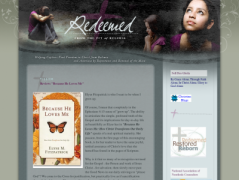Back in the days when I had time to read fiction, I also enjoyed the authors' series - especially the biblical fiction ones Big surprise there, huh? The A.D. Chronicles, which followed the Zion Legacy, were the most enjoyable. I thought Valentina's review was quite well-written for a 13-year-old, and decided to post it here for any Christian fiction aficionados who are looking for a good read. She certainly gives the reader enough information about the book, and gives an idea of the action's pace. So, without further ado....
"Jerusalem's Hope"
by Valentina
First off, the story begins when the three boys, Avel, Ha-or Tov, and Emet, were with Yeshua, or Jesus, in Galilee. Yeshua healed Ha-or Tov of blindness, and he also healed Emet of deafness. Yeshua also taught them about creation, stars, heaven, and faith. After a while, Yeshua told the boys to travel south and across Jordan, until they reached Migdal Eder, in Beth-lehem. There they would have to deliver a message to Zadok, the shepherd there. So, the three boys went, being careful of danger, including Kittem and bar Abba, who were rebel groups.
Finally, the boys reached Beth-lehem, and they met Zadok and told him the message from Yeshua. The message was: “Mourners are blessed, for they will be comforted.” (Yeshua wanted to tell Zadok that because Zadok’s wife and kids died). Zadok decided to let the boys live in his house. He taught them how to be shepherds, and how to take care of sheep. He also taught them about the Torah, God, and Jewish holidays, including Passover. He made sure they knew the alphabet too. In time, the boys grew closer to Zadok. There were still problems in Migdal Eder though. Roman centurions decided to build a aqueduct. This upset people who lived near where they were building it, including Zadok. The sheep kept getting stolen, and of course, the Jews blamed it on the Roman workers.
Meanwhile, Emet (who was only a five year old) had an encounter with Asher, who was a rebel. He overheard Asher talking about a plot to destroy the water tower. Asher caught Emet while he was listening, and he threatened to kill Emet if he told anyone about his plan. So naturally, Emut kept his mouth shut and the day came when the tower collapsed on top of most of the workers. (The tower collapsing actually did happen-*Luke 13:4*) The Romans blamed the Jews for that, and the Jews got angry, so they started to fight. Lev, one of the shepherds, killed Amos, a stone cutter. Then, Ben, another worker, killed Jehu, who was a Jew. Marcus Longinus, the only Centurion there who had any respect for the Jews, was fair and decided to crucify both Lev and Ben as an example-because they both committed murder.
Because Emet did not want Lev to be crucified, he had to give up something precious to take the place of the crucifixion. In his case, it was a black lamb named Bear who Emet loved. The lamb was slaughtered, and Marcus spared both men from their crucifixion. Emet later tells Marcus the whole story-that bar Abba knocked the tower down-and Emet asked for forgiveness for not telling anyone that this was going to happen. Zadok also teaches the boys a similar story. He told he boys about the coming of the Messiah and how He would die on the cross, even though He didn’t do anything wrong. A few days later, all four of them traveled to Jerusalem for Passover. Unfortunately, there was a lot of fighting and violence there, and Zadok and Avel almost got killed. Marcus saved them in the last second. When they arrive home again, they have a feast, and to Zadok’s surprise, Yeshua visits them. All five of them feast for the night and at the end of the book everybody is happy.
There are some confusing parts in the book, such as when the book shifted from the boys and Zadok to the arguments and politics of Rome, the Jews, and the rebels. For some reason, most of the time when the book talked about those things, it just bored me. Some of the parts were easy to understand because it was history that I’ve heard before. Other parts were difficult. Some of the centurions talked about “cohorts”, “delegates”, and “squadrons”, which I didn’t understand at all. It reminded me of those war movies that I used to watch when I was little despite actually knowing what was going on…and it just lost my interest.
Besides all of that, there were pros in the book too. A lot of the points in the book I understood-like when Zadok was teaching the kids about the coming of the Messiah and why they celebrate Passover. Those parts made the book more interesting. Also, the book talked a lot about the Hebrew culture which I liked because I enjoy learning about different cultures and religions.
Also, the book was suspenseful in some chapters. In one of the chapters, it said that when Emet lost Avel and Ha-or Tov while taking a walk, he heard a person in the woods. Before I figured out that it was Asher, I kept on trying to think of who it could be. I like suspense because it keeps my interest. I also like the characters’ personalities that the author wrote about. All of the boys were very intelligent and had common sense, Zadok was very caring and smart, and Marcus put others before himself.
I would recommend “Jerusalem’s Hope” to anyone who likes a lot of history, culture, and for peope who already have some knowledge about the Bible, considering that a lot of the book contains Bible stories, events, and lessons from there too.


















